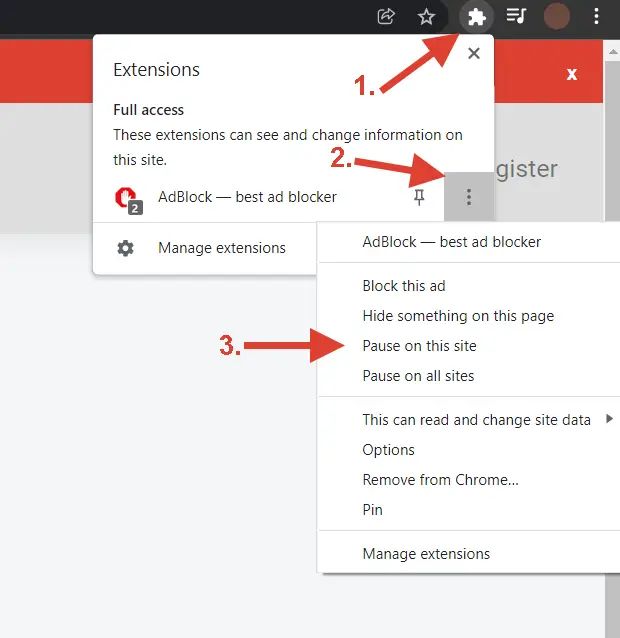In the dynamic world of digital retail, choosing the right platform is only the first step. To truly succeed, you need an ecosystem of powerful tools and expert guidance. For businesses running on Adobe Commerce, this ecosystem is centered around the Adobe Commerce Marketplace and its network of dedicated partners. But navigating this vast landscape can be a challenge.
This guide will demystify the marketplace, explain the different types of extensions, and show you how to find the perfect partner to scale your business. We’ll explore everything from the core platform to the specialized solutions that can transform your online store. Understanding this ecosystem is the key to unlocking the full potential of your e-commerce operations. If you’ve ever asked yourself what is adobe commerce or what is adobe commerce cloud, you’re in the right place to learn how its powerful community can help you thrive. At its heart, it’s about building a robust what is e commerce marketplace for your own brand, supported by the best in the business.
Table of Contents
- What Is the Adobe Commerce Marketplace?
- The Adobe Exchange: A Universe of Integrations
- Finding the Right Tools: Types of Marketplace Extensions
- The Power of Partnership: Understanding Adobe Commerce Partners
- How to Choose the Right Partner for Your Business
- Frequently Asked Questions
What Is the Adobe Commerce Marketplace?
The adobe commerce marketplace is the official app store for the Adobe Commerce and Magento Open Source platforms. Think of it as a centralized hub where merchants can discover and purchase thousands of extensions and themes to add new features, enhance functionality, and customize their online stores without having to build solutions from scratch.
This is much more than just a simple adobe market place; it’s a curated and vetted environment. Every extension submitted to the marketplace adobe undergoes a rigorous review process by Adobe engineers. This process checks for code quality, security vulnerabilities, and compatibility, ensuring that the solutions you integrate are reliable and safe. Whether you’re looking for a simple design theme or a complex integration with an ERP system, the adobe magento marketplace is your first and most trusted destination.
The platform, also known as the adobe extension marketplace, offers solutions for virtually every business need, from marketing automation and payment gateways to shipping logistics and customer support. For merchants, this means faster innovation and the ability to adapt to market changes quickly. The official name for this hub is the marketplace adobe commerce, and it stands as a cornerstone of the platform’s value.
The Adobe Exchange: A Universe of Integrations
While the Commerce Marketplace is specific to e-commerce, it is part of a much larger ecosystem known as the adobe exchange. The Adobe Exchange is the enterprise marketplace for all Adobe Experience Cloud applications, encompassing thousands of third-party applications, integrations, and extensions that enhance the entire suite of Adobe products, including Adobe Analytics, Marketo Engage, and Adobe Experience Manager.
The adobe exchange marketplace connects businesses with pre-built solutions that help create seamless, end-to-end customer experiences. So, what is adobe exchange? It’s a broader platform where the Commerce Marketplace lives, ensuring that your e-commerce store can integrate flawlessly with your wider marketing and data analytics stack.
Within this ecosystem, you’ll find various specialized areas. The adobe exchange app marketplace is the primary destination for these integrations. You may also encounter terms like the adobe cloud marketplace, which refers to solutions that leverage Adobe’s cloud infrastructure, or the adobe vip marketplace, a program designed for resellers and partners to manage Adobe software licenses for their clients.
Finding the Right Tools: Types of Marketplace Extensions
The real power of the marketplace lies in its incredible diversity of solutions. An adobe commerce marketplace extension can solve a specific problem, automate a tedious process, or unlock an entirely new revenue stream. These extensions are typically developed by independent agencies and developers who are experts in the platform.
When browsing the adobe marketplace magento, you’ll find extensions across several key categories:
- Payments & Security: Integrate with popular payment gateways, add fraud protection, and ensure PCI compliance.
- Marketing: Connect with email marketing platforms, add SEO tools, implement loyalty programs, and launch affiliate campaigns.
- Shipping & Fulfillment: Streamline your logistics with advanced shipping calculators, connect to major carriers, and integrate with warehouse management systems.
- Customer Support: Add live chat functionality, ticketing systems, and advanced customer account features.
- Site Optimization: Improve site speed, manage caches, and enhance the user experience with better search and navigation.
Each extension comes with documentation, support information, and community reviews, helping you make an informed decision before you purchase.
The Power of Partnership: Understanding Adobe Commerce Partners
Beyond software extensions, the Adobe ecosystem is built on a global network of skilled implementation partners. These are the agencies and consultants who design, build, and maintain sophisticated Adobe Commerce websites. Working with adobe commerce partners is often essential for complex projects, custom development, and long-term strategic growth.
An official adobe commerce partner has been vetted by Adobe and has a proven track record of successful implementations. They have access to exclusive training, resources, and support from Adobe, ensuring they are always up-to-date on the latest best practices.
Adobe has a tiered system to classify its partners, known as adobe partner levels. These tiers reflect an agency’s experience, number of certified developers, and history of successful projects. The primary tiers include:
- Bronze Partners: Agencies that are newer to the ecosystem but have met the initial requirements for partnership.
- Silver Partners: Established partners with a growing team of certified professionals and a solid portfolio of client work.
- Gold Partners: These are highly experienced agencies with a large number of certified developers and a strong, proven ability to handle complex, enterprise-level projects. Many businesses specifically seek out adobe commerce gold partners for their expertise. A gold partner adobe commerce is recognized for their significant contributions and success.
- Platinum Partners: The highest tier, reserved for elite global partners with extensive capabilities and a deep strategic relationship with Adobe. These were formerly known in the community as magento premier partners.
When searching for help, you can use Adobe’s official directory, which has replaced the old magento partner finder, to locate an adobe commerce certified partner. Working with a certified adobe commerce partner agency like an adobe gold partner or an adobe gold solution partner ensures you are collaborating with a team that meets Adobe’s highest standards. Many of these agencies are also considered top rated adobe commerce partners within the community. These experts are more than just developers; they are strategic advisors who understand the nuances of both the technology and the business of e-commerce, filling the role once known by the term adobe magento partners. The different adobe partnership levels help merchants quickly gauge the scale and experience of a potential agency.
How to Choose the Right Partner for Your Business
Selecting the right partner is a critical business decision. The right agency will feel like an extension of your own team, while the wrong one can lead to costly delays and missed opportunities.
Here are a few key factors to consider:
- Technical Expertise & Certifications: Look at the number of Adobe-certified developers on their team. Do they have specializations in areas relevant to your project, like B2B or Adobe Commerce Cloud?
- Industry Experience: Have they worked with businesses in your vertical? An agency that understands the unique challenges of your industry (e.g., fashion, automotive, CPG) will deliver better results.
- Portfolio and Case Studies: Review their past work. Do their previous projects align with the scale and complexity of what you want to build? Ask for client references and speak with them directly.
- Cultural Fit and Communication: A good partnership relies on clear communication and a shared vision. Ensure their project management style and communication cadence work for your team.
- Partnership Level: While a higher tier isn’t always better for every project, the adobe partnership levels can be a useful indicator of an agency’s investment and experience within the ecosystem. An adobe gold reseller, for example, has deep expertise not just in implementation but also in the licensing and strategic deployment of Adobe solutions.
Frequently Asked Questions
What is adobe marketplace?
The Adobe Marketplace, specifically the Adobe Commerce Marketplace, is the official online store for discovering, purchasing, and installing third-party extensions, themes, and applications for the Adobe Commerce and Magento Open Source platforms. All listings are reviewed by Adobe for quality and security.
What is adobe exchange?
Adobe Exchange is the broader enterprise marketplace for the entire Adobe Experience Cloud. It features thousands of integrations, extensions, and applications that connect various Adobe products (like Commerce, Analytics, and Marketo) with third-party technologies, creating a unified customer experience management platform.
What is adobe vip marketplace?
The Adobe VIP Marketplace, or Value Incentive Plan Marketplace, is a licensing program and portal designed for Adobe resellers and partners. It allows them to manage and transact Adobe software licenses for their customers in a streamlined, subscription-based model, often integrating directly into the reseller’s own cloud marketplace.
What is the difference between Adobe Commerce and Magento Open Source?
Magento Open Source is the free, open-source version of the e-commerce platform. Adobe Commerce is the premium, enterprise-level version built on the same core code but includes advanced features, cloud hosting, performance tools, and dedicated 24/7 support from Adobe.
How do I become an Adobe Commerce partner?
To become an Adobe Commerce partner, your agency must apply through the Adobe Solution Partner Program. The process involves meeting specific business and technical requirements, including having a certain number of certified developers on staff, demonstrating a history of successful projects, and committing to a co-selling relationship with Adobe.


